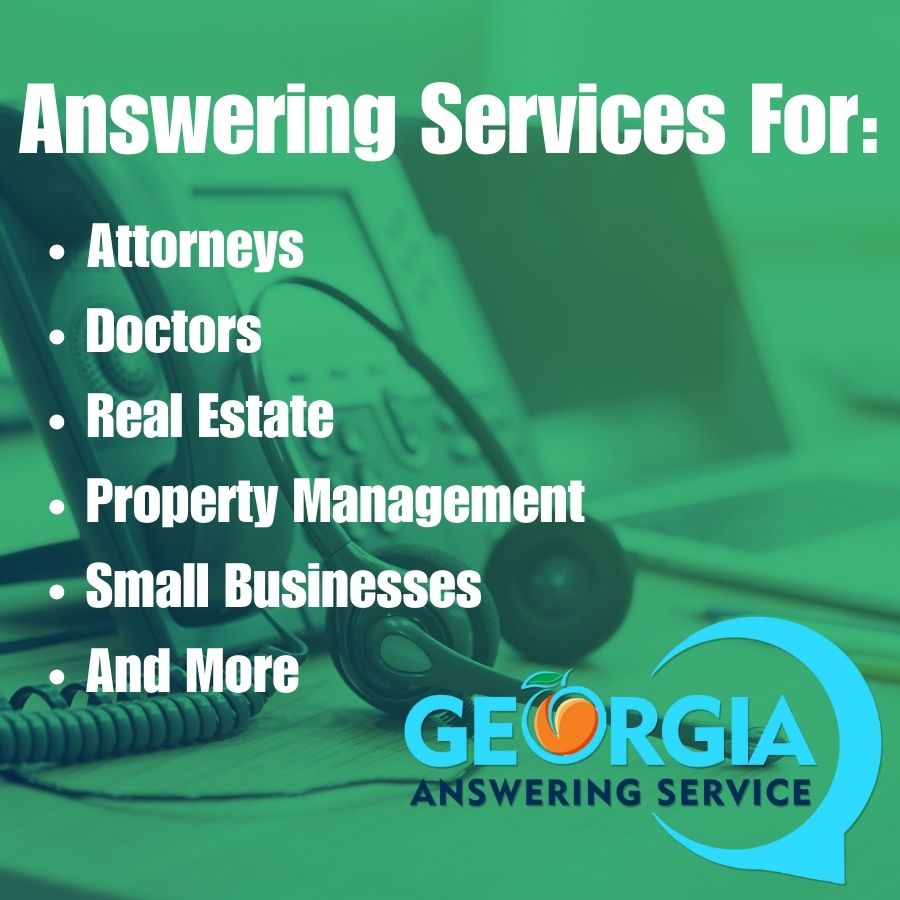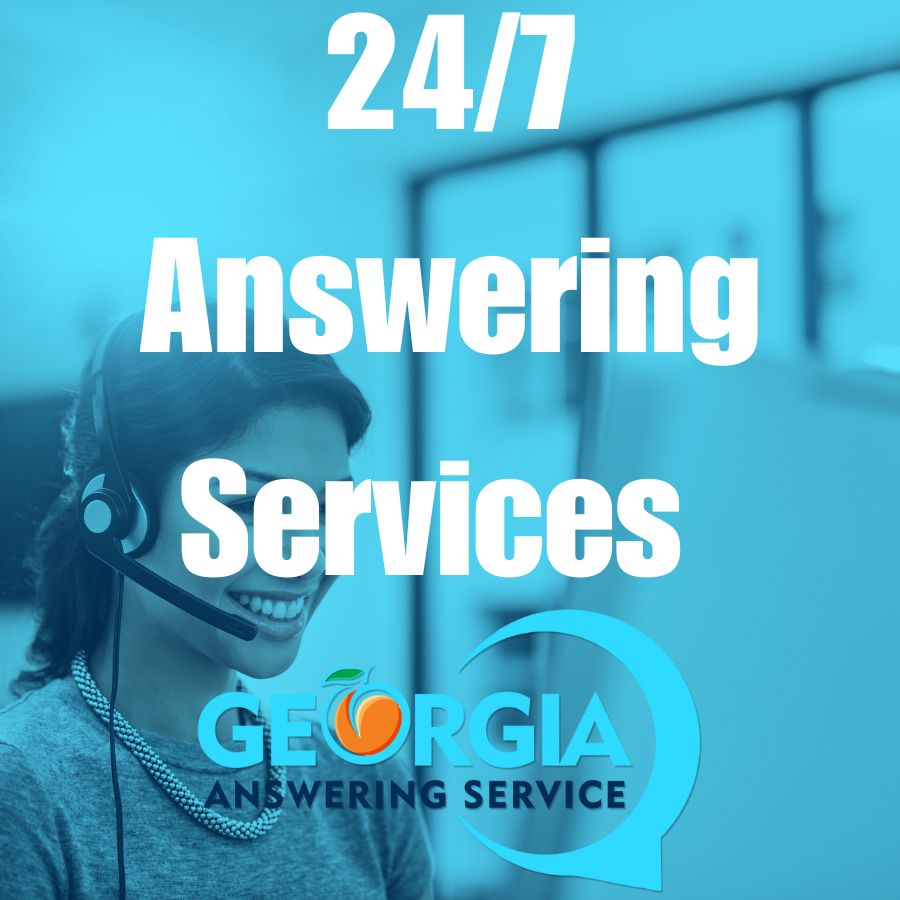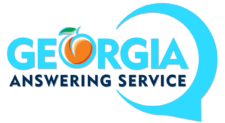
HIPAA Compliant Medical Answering Services in Georgia in 2023
In the ever-evolving landscape of healthcare, maintaining patient privacy is paramount. The Health Insurance Portability and Accountability Act (HIPAA) was established to safeguard patient health information. If you’re a medical practice or healthcare provider in Georgia, ensuring your operations align with HIPAA standards is not just a matter of law, but also of trust. One key area that’s often overlooked is the answering service. It plays a pivotal role in managing patient information, appointments, and emergencies. Here’s a comprehensive guide on finding a HIPAA compliant medical answering service in Georgia.
Understanding the Importance of HIPAA Compliance:
Before diving into the search, it’s vital to grasp the significance of HIPAA compliance in answering services:
- Patient Trust: Being HIPAA compliant signifies to your patients that their private health information is secure with you.
- Avoiding Penalties: Non-compliance can lead to hefty fines and even legal action.
- Professionalism: Aligning with industry standards is an indicator of a professional and responsible medical establishment.
Starting Your Search:
- Recommendations and Referrals: Begin by consulting with fellow healthcare providers, colleagues, or professional associations in Georgia. They might have tried-and-tested recommendations.
- Online Directories: Websites like the Better Business Bureau or industry-specific directories often list reputable services, complete with ratings and reviews.
- Medical Conferences and Seminars: These gatherings can be a goldmine for networking and discovering reputable service providers.
Key Features to Look for:
- 24/7 Availability: Healthcare doesn’t follow a 9-5 schedule. Your answering service should be available round the clock.
- Bilingual Services: Georgia has a diverse population. Having bilingual or even multilingual operators can enhance patient communication.
- Customizable Scripting: The service should be able to tailor their responses to align with your practice’s tone and requirements.

Verifying HIPAA Compliance:
- Ask for Documentation: A genuinely HIPAA compliant answering service in Georgia will readily provide documentation or certification proving their adherence to the regulations.
- Training Protocols: Ensure that the service regularly trains its staff on HIPAA standards.
- Data Encryption: Check if the service employs data encryption for all communications to prevent unauthorized access.
- Audit Trails: The service should maintain logs of all interactions, ensuring there’s a traceable record for accountability.
Test the Service:
Before finalizing a contract, consider doing a trial run. This will give you a firsthand experience of the service’s responsiveness, professionalism, and adherence to your guidelines.
Inquire About Additional Services:
Many answering services offer additional features such as appointment scheduling, prescription refill requests, and emergency dispatch. Determine if these add-ons align with your practice’s needs.
Cost Considerations:
While cost is undoubtedly a factor, it shouldn’t be the only one. A slightly pricier HIPAA compliant service might save you from substantial non-compliance fines in the long run. That said, always get a clear breakdown of costs, and be wary of hidden charges.
Review Contracts Carefully:
Once you’ve zeroed in on an answering service, scrutinize the contract. Ensure there are clauses that explicitly mention their commitment to HIPAA compliance. Also, consider having a legal expert review the contract, especially if there are terms that seem unclear.
Finding a HIPAA compliant medical answering service in Georgia is an essential task that demands diligence. By ensuring that the service you choose adheres strictly to HIPAA guidelines, you not only protect your practice from potential legal troubles but also reinforce the trust your patients place in you.

Local Regulations and the Interplay with HIPAA
When considering medical answering services in Georgia, it’s important to understand that while the HIPAA sets the federal standard, states can have their own regulations regarding medical privacy. Georgia, like many states, has its own rules to ensure the protection of patient health information. So, when choosing a service, it’s essential to consider both federal and state guidelines.
Georgia’s medical privacy regulations often overlap with HIPAA, but there are areas where the state has stricter requirements. For instance, while HIPAA might have broad directives about patient data protection, Georgia could have specific rules about data storage duration, breach notifications, or even the disposal of such records.
This dual layer of compliance means that a medical answering service operating in Georgia must be well-versed in both sets of regulations. It’s not just about avoiding legal consequences; it’s about ensuring patients that their data is handled with the utmost care, no matter where the rules are coming from. When engaging with potential answering services, engage in a conversation about their experience in Georgia. Have they served other healthcare providers in the state? Are they aware of local nuances in data protection? Their answers can provide valuable insights into their expertise and reliability.
Establishing a Partnership
Remember, an answering service isn’t just an external vendor; they act as an extension of your practice. Their interactions with patients can shape the overall perception of your healthcare services. This is why it’s critical to view them as partners. Regular communication and feedback loops can ensure that the service remains aligned with your practice’s values and standards.
Consider setting up quarterly reviews to discuss performance, challenges, and any updates in the medical field that might impact the service. This collaboration ensures a long-term, fruitful relationship that benefits both parties and, most importantly, serves the patients effectively.

Navigating the landscape of medical answering services in Georgia can seem daunting, especially with the imperative of HIPAA compliance and state-specific regulations. However, with careful consideration, research, and open communication, you can find a service that not only meets legal standards but also enhances patient experience and trust. Investing time in this process can lead to a partnership that adds significant value to your practice, ensuring seamless communication, patient satisfaction, and peace of mind regarding compliance and data protection.
Pricing Structures for HIPAA Compliant Answering Services in Georgia
The cost of hiring a HIPAA compliant answering service in Georgia varies based on several factors, including the size of the practice, the volume of calls, the complexity of the services required, and any additional features or customizations. By 2023, with the rise in technology and competition, the prices have seen fluctuations, but they largely remain competitive. Here’s a breakdown of what you can expect.
1. Flat-Rate Monthly Fees: Some answering services charge a flat monthly fee. This can range anywhere from $50 to $1,500 a month, depending on the service level. Such pricing models are generally straightforward, but it’s crucial to understand what’s included in the fee and whether there are any additional charges.
2. Per-Call Charges: Other services might charge you based on the number of calls they handle. The per-call rate can range from $0.75 to $2.50. However, be cautious about how the service defines a “call.” Some might count unanswered calls or very short calls, which could inflate your costs.
3. Minute-Based Charges: Charging per minute is another common model. This means you’re billed for the total time the service spends on calls for your practice. Rates typically vary between $0.70 and $1.50 per minute.
4. Package Deals: For practices with a predictable call volume, some services offer package deals. For instance, you might pay a set price for up to 1,000 calls or 500 minutes per month. The exact rates can differ widely based on the package details.
5. Additional Fees: There may be extra charges for services like appointment scheduling, emergency dispatch, bilingual services, or sending messages via particular formats. It’s always good practice to ask about any potential hidden fees or additional costs upfront.
6. Set-Up and Training Costs: Some services might have a one-time setup fee, which could range from $50 to $500, depending on the service’s complexity and any initial training or customization required.
It’s essential to remember that while cost is a crucial factor, it should not be the only consideration. Quality, reliability, responsiveness, and the ability to handle complex situations or emergencies are invaluable. Moreover, a HIPAA violation could result in hefty fines and a damaged reputation, which might cost more in the long run than investing in a slightly more expensive, but highly compliant, answering service.

As always, it’s beneficial to get quotes from multiple providers to compare costs and offerings. Ensure you’re comparing like with like – the cheapest service might not necessarily provide the best value, depending on your practice’s specific needs and the quality of service delivered.
Considerations When Selecting a HIPAA Compliant Answering Service
Now that you have a better grasp of the cost structures, it’s also important to understand other pivotal factors that play a significant role in the selection process. Here are some considerations to keep in mind:
1. Reputation and Reviews: Look for answering services that have a solid track record. You can ask for references or check online reviews. Fellow medical professionals in your network can also be a good source of recommendations.
2. Training and Expertise: The representatives answering the calls should have appropriate training, not just in managing calls but also in understanding the medical terminologies, patient needs, and the importance of patient privacy.
3. Technology and Infrastructure: HIPAA compliance requires secure transmission and storage of patient data. The answering service should have the necessary technology and infrastructure, including encrypted communication channels, secure databases, and regular security audits.
4. Flexibility and Customization: Every medical practice is unique. The answering service should be flexible enough to adapt to your specific requirements, whether it’s appointment setting, emergency dispatch, or relaying messages to the right department or individual.
5. Response Time: In the medical field, timely communication can be critical. Ensure that the answering service can guarantee quick response times, especially in emergencies.
6. Contract Terms and Conditions: Be clear about the contract’s duration, the terms of service, any hidden fees, and the protocol for termination if you’re not satisfied with the service.
7. Disaster Recovery: Medical emergencies don’t wait for ideal conditions. Ensure that the answering service has a disaster recovery plan in place, so they can remain operational even during unforeseen circumstances like natural disasters or power outages.
8. Bilingual or Multilingual Services: Georgia has a diverse population, and offering services in multiple languages can enhance patient care. If a significant portion of your patients speak a language other than English, consider an answering service that offers multilingual support.
While finding a HIPAA compliant answering service in Georgia requires careful consideration and research, the benefits of streamlining communication, enhancing patient care, and ensuring compliance far outweigh the efforts. Take the time to evaluate different services, get quotes, and assess the potential ROI before making a final decision. Your patients, staff, and bottom line will thank you.

Continuity and the Importance of 24/7 HIPAA Compliant Support
When running a medical practice, ensuring that patients can reach out at any given time, especially during emergencies, is vital. A HIPAA compliant answering service that operates around the clock offers multiple advantages:
Consistency in Patient Communication: Whether it’s midnight or midday, patients expect a consistent level of service. A 24/7 answering service ensures that no call goes unanswered and each patient receives the same quality of response.
Enhanced Trust and Reliability: When patients know they can reach out to your practice at any time, it builds trust. They recognize that you prioritize their health and well-being, further cementing their loyalty to your practice.
Reduction in Missed Opportunities: Every missed call can be a missed appointment, a missed prescription refill request, or even a missed emergency. An always-available answering service ensures that your practice remains at the forefront of care and service.

Keeping Up with Compliance: Regular Training and Updates
HIPAA guidelines and regulations aren’t static. They evolve with the changing landscape of medical technology and patient data handling. When partnering with an answering service, it’s imperative to ensure they prioritize regular training and updates.
Ongoing Training Programs: The answering service should have a dedicated program in place to train its staff about the latest in HIPAA regulations, ensuring that every representative is up-to-date and knowledgeable.
Regular Audits: Periodic audits can help in identifying any potential weak points in the data handling process. The answering service should be open to both internal and third-party audits, ensuring transparency and adherence to compliance.
Finding a HIPAA compliant medical answering service in Georgia that aligns with your practice’s needs can be a game-changer. It not only streamlines patient communication but also ensures that your practice remains on the right side of compliance regulations. As healthcare continues to evolve, being proactive in areas like this can set your practice apart, offering both operational efficiency and unmatched patient care.


